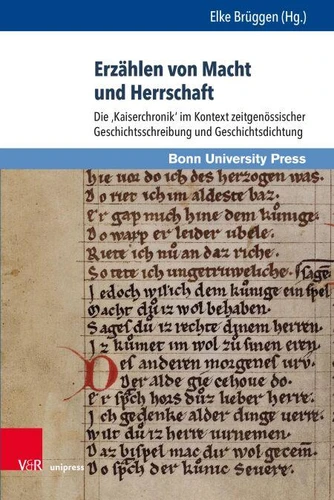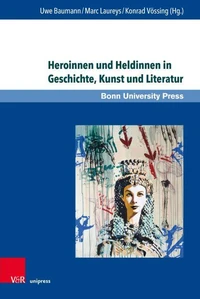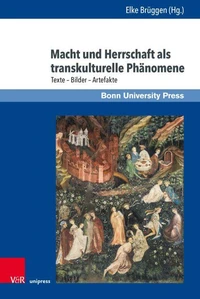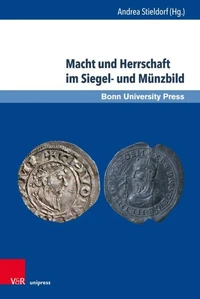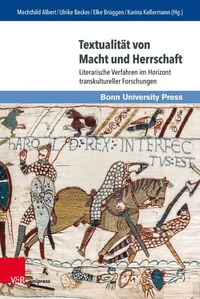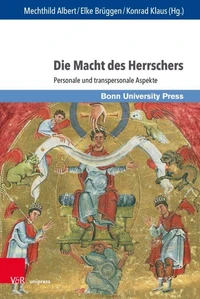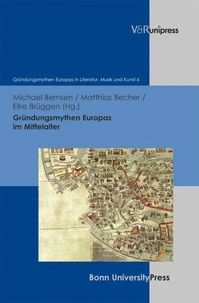Erzählen von Macht und Herrschaft. Die 'Kaiserchronik' im Kontext zeitgenössischer Geschichtsschreibung und Geschichtsdichtung
Par : , , , ,Formats :
Disponible dans votre compte client Decitre ou Furet du Nord dès validation de votre commande. Le format PDF est :
- Compatible avec une lecture sur My Vivlio (smartphone, tablette, ordinateur)
- Compatible avec une lecture sur liseuses Vivlio
- Pour les liseuses autres que Vivlio, vous devez utiliser le logiciel Adobe Digital Edition. Non compatible avec la lecture sur les liseuses Kindle, Remarkable et Sony
 , qui est-ce ?
, qui est-ce ?Notre partenaire de plateforme de lecture numérique où vous retrouverez l'ensemble de vos ebooks gratuitement
Pour en savoir plus sur nos ebooks, consultez notre aide en ligne ici
- Nombre de pages216
- FormatPDF
- ISBN978-3-8470-1083-8
- EAN9783847010838
- Date de parution09/12/2019
- Protection num.pas de protection
- Taille9 Mo
- Infos supplémentairespdf
- ÉditeurV&R Unipress
Résumé
Die mittelhochdeutsche 'Kaiserchronik' ist in der germanistisch-mediävistischen Forschung als ein bemerkenswertes Experiment historischen Erzählens profiliert worden. Dieser Band ermöglicht durch Zugriffe aus verschiedenen europäischen wie außereuropäischen Disziplinen neue Blicke auf den Text. Aktuelle Überlegungen zum Gattungsstatus der 'Kaiserchronik', zur Präsenz und Funktionalisierung Roms innerhalb des Textes und zur Behandlung raumzeitlicher Phänomene gehen mit Beobachtungen zur Wahrnehmung von Herrschaft in der lateinischen Geschichtsschreibung des 12.
sowie einem persischen Epos des 14. Jahrhunderts eine spannende Verbindung ein. Durch den strukturellen wie thematischen Vergleich mit einem zeitgenössischen Werk aus der Sanskrit-Literatur und japanischen Erzählungen über die Vergangenheit des Hofes erscheinen der mittelhochdeutsche Text und die auf ihn bezogenen Forschungsdiskurse in einem neuen Licht. Recent research in the field of Middle High German literature has characterised the 'Chronicle of the Emperors', dating from the midst of the 12th century, as a very interesting experiment in narrating historical events.
The volume at hand draws on these insights and at the same time rereads the text in a new context by looking at it from different European and Non-European disciplines. Current reflections on the genre status of the 'Chronicle of the Emperors', on the presence and the functionalisation of Rome within the text and on the treatment of spatio-temporal phenomena are linked with observations on the perception of dominance in Latin historiography of the 12th and in a Persian epic of the 14th century.
Through a structural and thematic comparison with a contemporary work from Sanscrit literature and Japanese narratives about the court's past, the Middle High German text as well as the research dealing with it appear in a new light.
sowie einem persischen Epos des 14. Jahrhunderts eine spannende Verbindung ein. Durch den strukturellen wie thematischen Vergleich mit einem zeitgenössischen Werk aus der Sanskrit-Literatur und japanischen Erzählungen über die Vergangenheit des Hofes erscheinen der mittelhochdeutsche Text und die auf ihn bezogenen Forschungsdiskurse in einem neuen Licht. Recent research in the field of Middle High German literature has characterised the 'Chronicle of the Emperors', dating from the midst of the 12th century, as a very interesting experiment in narrating historical events.
The volume at hand draws on these insights and at the same time rereads the text in a new context by looking at it from different European and Non-European disciplines. Current reflections on the genre status of the 'Chronicle of the Emperors', on the presence and the functionalisation of Rome within the text and on the treatment of spatio-temporal phenomena are linked with observations on the perception of dominance in Latin historiography of the 12th and in a Persian epic of the 14th century.
Through a structural and thematic comparison with a contemporary work from Sanscrit literature and Japanese narratives about the court's past, the Middle High German text as well as the research dealing with it appear in a new light.
Die mittelhochdeutsche 'Kaiserchronik' ist in der germanistisch-mediävistischen Forschung als ein bemerkenswertes Experiment historischen Erzählens profiliert worden. Dieser Band ermöglicht durch Zugriffe aus verschiedenen europäischen wie außereuropäischen Disziplinen neue Blicke auf den Text. Aktuelle Überlegungen zum Gattungsstatus der 'Kaiserchronik', zur Präsenz und Funktionalisierung Roms innerhalb des Textes und zur Behandlung raumzeitlicher Phänomene gehen mit Beobachtungen zur Wahrnehmung von Herrschaft in der lateinischen Geschichtsschreibung des 12.
sowie einem persischen Epos des 14. Jahrhunderts eine spannende Verbindung ein. Durch den strukturellen wie thematischen Vergleich mit einem zeitgenössischen Werk aus der Sanskrit-Literatur und japanischen Erzählungen über die Vergangenheit des Hofes erscheinen der mittelhochdeutsche Text und die auf ihn bezogenen Forschungsdiskurse in einem neuen Licht. Recent research in the field of Middle High German literature has characterised the 'Chronicle of the Emperors', dating from the midst of the 12th century, as a very interesting experiment in narrating historical events.
The volume at hand draws on these insights and at the same time rereads the text in a new context by looking at it from different European and Non-European disciplines. Current reflections on the genre status of the 'Chronicle of the Emperors', on the presence and the functionalisation of Rome within the text and on the treatment of spatio-temporal phenomena are linked with observations on the perception of dominance in Latin historiography of the 12th and in a Persian epic of the 14th century.
Through a structural and thematic comparison with a contemporary work from Sanscrit literature and Japanese narratives about the court's past, the Middle High German text as well as the research dealing with it appear in a new light.
sowie einem persischen Epos des 14. Jahrhunderts eine spannende Verbindung ein. Durch den strukturellen wie thematischen Vergleich mit einem zeitgenössischen Werk aus der Sanskrit-Literatur und japanischen Erzählungen über die Vergangenheit des Hofes erscheinen der mittelhochdeutsche Text und die auf ihn bezogenen Forschungsdiskurse in einem neuen Licht. Recent research in the field of Middle High German literature has characterised the 'Chronicle of the Emperors', dating from the midst of the 12th century, as a very interesting experiment in narrating historical events.
The volume at hand draws on these insights and at the same time rereads the text in a new context by looking at it from different European and Non-European disciplines. Current reflections on the genre status of the 'Chronicle of the Emperors', on the presence and the functionalisation of Rome within the text and on the treatment of spatio-temporal phenomena are linked with observations on the perception of dominance in Latin historiography of the 12th and in a Persian epic of the 14th century.
Through a structural and thematic comparison with a contemporary work from Sanscrit literature and Japanese narratives about the court's past, the Middle High German text as well as the research dealing with it appear in a new light.

